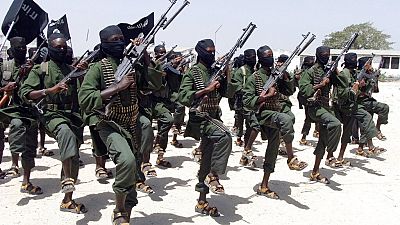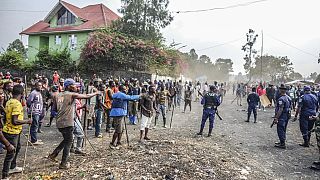Ethiopia
Extremist group al-Shabab has taken advantage of Ethiopia's internal turmoil to cross the border from neighbouring Somalia in unprecedented attacks in recent weeks, according to a senior US military commander.
The deadly incursions into Ethiopia, Africa's second most populous country and long considered an anchor of security in the Horn of Africa, are the latest sign of the scale of the recent war in the northern Tigray region and another ethnic fighting that has made the country more vulnerable.
Ethiopia has long resisted cross-border attacks by al-Qaeda-linked al-Shabab, including by deploying troops to Somalia, where the extremist group controls large rural areas in the southern and central regions of the country. But Prime Minister Abiy Ahmed's government and its security forces have been struggling with domestic unrest, particularly since the Tigray conflict began in late 2020.
Experts say al-Shabab, also emboldened by instability under Somalia's previous administration, is seizing the opportunity to expand its footprint and claim responsibility for killing dozens of Ethiopian security forces. But the group is also feeling the pressure of a renewed push by Somalia's new government and the return of US forces to the country after their withdrawal by former President Donald Trump.
Strategic shift
Matt Bryden, a security analyst at the Sahan Foundation think tank, told the Associated Press that al-Shabab is turning its attention to Ethiopia in a significant strategic shift. The extremist group had never been able to conduct major operations inside Ethiopia.
"Reports of clashes along the Ethiopia-Somalia border are only a fraction of the overall picture," said Matt Bryden. "We understand that the planning for this offensive began more than a year ago when the Ethiopian government appeared to be on the verge of collapse," as rival Tigrayan forces pushed towards the capital, Addis Ababa. These forces then retreated, and both sides are moving toward peace talks.
Al-Shabab has trained several thousand fighters for its Ethiopian "command", mainly Somalis and Oromos inside Ethiopia, says Matt Bryden. The Ethiopian federal government has said it fears al-Shabab could link up with the Oromo Liberation Army, which it has designated as a terrorist organisation, although other security experts have described this as unlikely.
Hundreds of al-Shabab fighters were able to sneak into Ethiopia last week alone and their presence was detected near several communities such as El Kari, Jaraati and Imey, Bryden said. These incursions began in late July. "There are also credible reports of al-Shabab units deploying towards Moyale," the main Ethiopian-Kenyan border post.
Major confrontation
Somalia's previous president, Mohamed Abdullahi Mohamed, avoided any major confrontation with al-Shabab. But new president Hassan Sheikh Mohamud has said his government will go on the offensive against the group's thousands of fighters, with the support of returning US forces.
"Al-Shabab is therefore facing a much greater military challenge than before in Somalia and has therefore embarked on this Ethiopian campaign to preserve some of its forces and establish strategic depth," according to Matt Bryden.
He warned that if Al-Shabab establishes a stronghold in south-eastern Ethiopia, "the consequences for peace and security in the region could be very serious". The fighters would be well placed to strike deeper into Ethiopia, Kenya and even as far west as Uganda. Al-Shabab has carried out several high-profile deadly attacks in Kenya over the years.
Last month, the outgoing head of the US Africa Command, General Stephen Townsend, warned that Al-Shabab's activities inside Ethiopia were not an "isolated case" and said the fighters had penetrated as far as 150km into the country.
Al-Shabab has long regarded Ethiopia as an enemy because of its long military presence in Somalia to counter the fighters. Through its media outlet Radio Andalus, the extremist group claimed to have killed at least 187 Ethiopian regional forces and seized military equipment in its attacks.













02:06
UN report reveals 4.6 million people struggling with food insecurity
01:10
At least three killed after AU military helicopter crashes in Somalia's Mogadishu airport
01:13
17 soldiers killed as gunmen raid army bases in northern Nigeria
01:07
At least 120 children abducted by Al Shabab in northern Mozambique, HRW says
01:15
Kenya court sentences two to jail terms for aiding 2019 hotel attackk
Go to video
Sheep markets struggle in Niger ahead of Eid al-Adha amid insecurity and economic strain